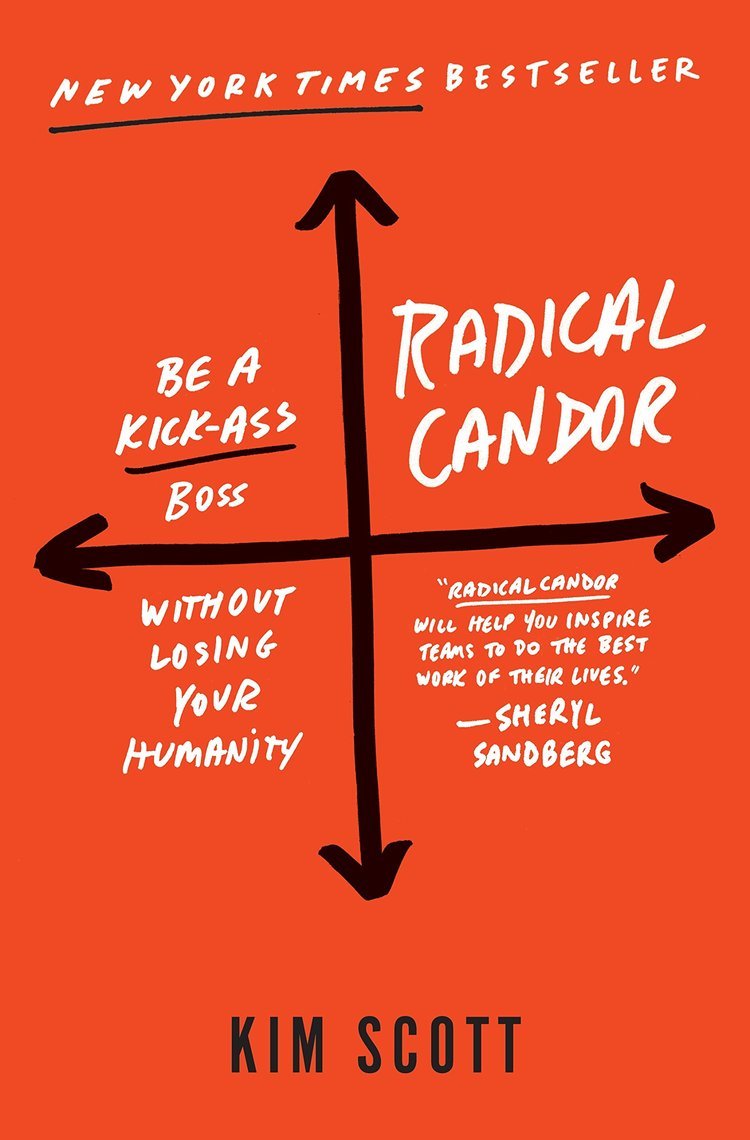Book Summary: Radical Candor, By Kim Scott
In the category of “how is it possible that I haven’t read this yet?” we have Radical Candor, by Kim Scott. The primary concepts of radical candor are familiar to me because I’ve listened to several episodes of the Radical Candor podcast. I mistakenly assumed that the book wouldn’t offer much more and I was dead wrong.
QUICK SUMMARY
In this book Scott describes a behavior framework where the x-axis is the degree to which you are willing to challenge others and the y-axis is the degree to which you care about them. Radical Candor is what you get when you both care personally and challenge directly. Scott also introduces the “Get Stuff Done” wheel, consisting of 7 steps: listen, clarify, debate, decide, persuade, execute, learn.
This book provides more than just leadership philosophies with interesting stories. It includes real, tangible tools and techniques that you can start using immediately. It has detailed descriptions of important meeting routines. There are scripts and questions to use. It is a highly practical and applicable book for professionals.
Buy the book: Radical Candor, Be a Kick-Ass Boss Without Losing Your Humanity
IDEAS THAT RESONATED
Debating a half-baked idea is likely to kill it. [Page 88]
Nothing kills an idea faster than putting it out there with the wrong people before you’ve had the chance to develop it. Scott describes it as the role of the boss to help people clarify and edit ideas to a point that they are ready to debate. In addition, I’d suggest finding some trusted colleagues in other business lines to hear your idea and give input before pitching it more formally. I call this being an idea ninja.
Expressing strong positions with others is a good way to get to a better answer, or at least to have a more interesting conversation. [Page 85]
This section of the book goes on to elaborate on having “strong opinions, weakly held” as an important concept for creating a culture of healthy debate. It’s the “weakly held” part that is the struggle for most. Depending on the culture of your organization, you might feel like it looks weak to change your mind. If you are known to never change your mind, then people won’t ever challenge your thinking. Especially if you’re in a position of authority. As a result, the solutions that your team comes to will be inferior.
Generally, an ambition or a commitment outside of work enhances a person's value to the team. [Page 50]
It would be logical to think that commitments outside work pull focus and decrease performance. Instead what happens is that people feel more fulfilled when they have the space to do things that hold meaning and interest and this has a positive performance effect in all areas. It’s been a genuine surprise to me how much having a speaking business and podcast has enhanced my contributions to my corporate job. I only truly flourished in both places once I was open at work about my ambitions outside of work. As leaders, a mandate of the great resignation is to learn about the broader life goals of our colleagues and find ways to support them. (the book includes a great framework for this)
Drop your email below if you liked this book summary and you want to be the first to know when new content is available.

